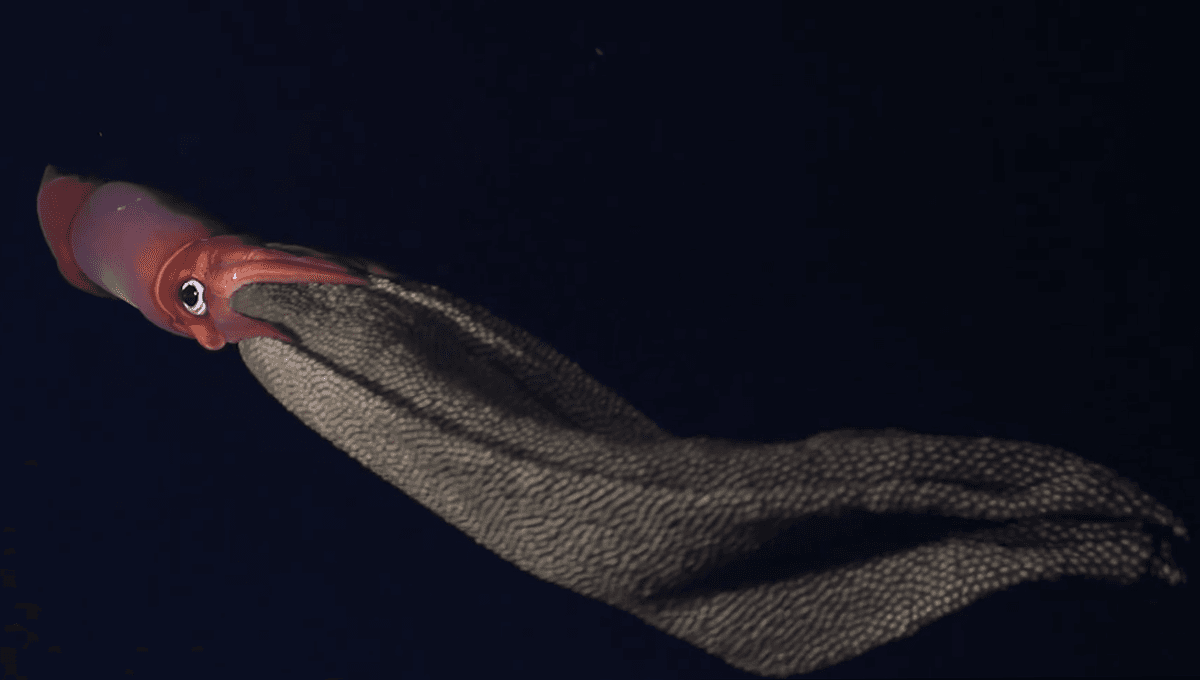
Parental duties in the animal kingdom cover a whole range of options, from those that lay eggs and then sacrifice a normal sleep to care for their young, to those that give birth to live young that can move about within a few hours. Most nature shows feature animals growing up and learning the ropes, but rarely do squid come to mind when it comes to great animal parents. Now the researchers at Schmidt Ocean have shared incredible footage of a black-eyed squid (Gonatus onyx) taking care of a whole host of eggs.
The black-eyed squid, also known as the clawed arm squid, is a common species that lives in the deep sea – around 1,900 meters (6,200 feet) below the surface of the water – in the Northern Pacific Ocean, writes the Monterey Bay Aquarium. However, little is known about the reproductive habits of this species, since it occurs at such depths.
The Schmidt Ocean Institute posted this video to their Instagram page showing how the squid was traveling through the water holding its eggs. According to the caption this squid was filmed near the Costa Rica Caballito Outcrop.
In 2005, a study was released showing how female black-eyed squid care for their eggs. The claws on their arms help them hold on to up to 3,000 eggs; as they swim, the females pump water through the egg clusters to keep them supplied with oxygen. At the time this was a different reproductive method than in all other known squid species. However, another species, Bathyteuthis berryi, is also known to brood its eggs after spawning.
While the secretive lives of these squids make learning about their ecology difficult, the team suspect that the mother will carry the eggs for 6-9 months, during which time it will not feed as the egg sac is blocking its mouth. Brad Seibel, the lead author of the 2005 study, thinks the mothers likely die soon after the eggs hatch, according to an interview with Science Friday.
Source Link: Incredible Footage Of A Deep-Sea Squid Brooding Thousands Of Eggs